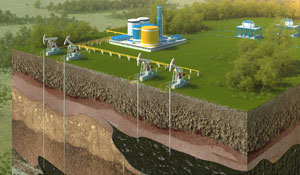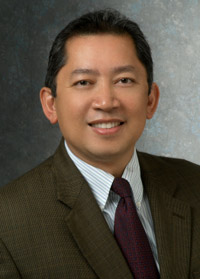Wednesday, July 17, 2019
- 9:00 am – 10:00 am
(PDT)
San Francisco, LA - 12:00 pm – 13:00 pm
(EDT)
Boston, New York - 5:00 pm – 6:00 pm
(GMT)
London - 6:00 pm – 7:00 pm
(CET)
Paris, Rome

Smart Proppants
New analytical methods enable better understanding of the materials behavior of smart proppants.
The Park Systems 2019 Materials Matter Material Science Research and AFM Webinar Series continues with Smart Proppants and Oilfield Productivity. In well completion and production, proppants are classified mostly as commodity materials. However, smart proppants deserve another look. This installment of the webinar series will explore proppants and their materials’ behavior, as well as their impact on higher productivity and lifetime of wells.
This webinar is the seventh in our 2019 Material Science Research and AFM Webinar Series “Materials Matter,” designed to help researchers understand leading edge developments in Materials Science Research and Applications using Atomic Force Microscopy. To view videos of the previous webinars in our series, click the titles on our webinar page. Click here for information on the full series.

Presented By :
Prof. Rigoberto Advincula, Macromolecular Science and Engineering, Case Western Reserve University
Dr. Advincula is a Professor with the Department of Macromolecular Science and Engineering at Case Western Reserve University and Editor-in-Chief of MRS Communications, Materials Research Society. He was formerly Chair of the Polymer Chemistry Division, American Chemical Society (ACS). He is recognized industry-wide as an expert regarding polymer and materials and is also a member of NACE, SPE, ACS. Dr. Advincula is the recipient of numerous awards including Fellow of the American Chemical Society, Herman Mark Scholar Award of the Polymer Division, and Humboldt Fellow. More recently, he was elected Member of The National Academy of Science and Technology (Philippines). He did Post-doctoral work at the Max Planck Institute for Polymer Research and Stanford University and has published over 500 papers, including 250 peer-reviewed publications, 11 patents (and pending) – H-index of 65 with over 13,000 citations, and has co-edited the book on Functional Polymer Films, Polymer Brushes, and New Trends in Polymer Science.






